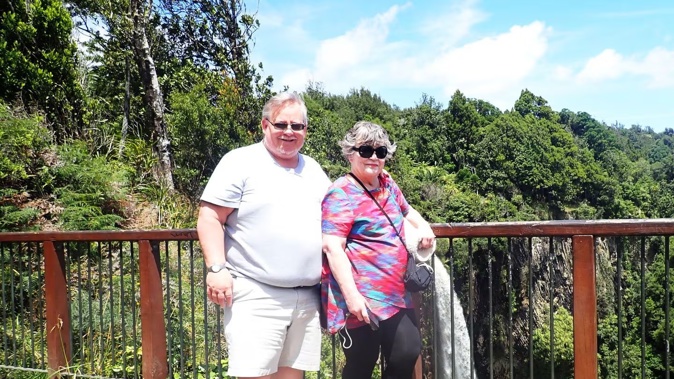
A couple of holidaymakers have accused the national airline of a lack of compassion after they were charged over $13,500 to change flights for a family medical emergency.
Todd and Patricia Kekeres, 60 and 75, were visiting New Zealand from the US on a tour of the country when they had an unexpected diagnosis that cut their three-month holiday short.
Six weeks into the trip, Todd Kekeres said that his wife suffered increasing discomfort and was booked into a gallbladder examination in Christchurch.
During what should have been “routine” gallstones surgery, the couple were delivered some unwelcome news: a cancerous growth was detected.
The referring surgeon advised them to “curtail their travel plans” and return to the States for an “urgent” follow-up. However, when they went to bring their flights forward, they were asked to stump up an additional US$8374 ($13,500) to fly last-minute, two months earlier than planned.
This change was almost half the price they had paid for the original return flights.
“The doctor told us the gravity of her condition and advised we had to go back to the States immediately,” said Todd Kekeres.
After several calls to the Air New Zealand customer support centre, Kekeres had asked to be moved to two comparable seats on the first available flight, which was on February 26.
“I was expecting a change fee,” he told the Herald, not to pay an additional fare to move his flights. “I was shocked.”
He and Patricia had booked Business Premium, New York to Auckland. To buy new one-way fares would have been $6,900 per person, only a couple hundred dollars more than what was supposedly the difference in fare to move the original booking.
Having already paid US$23,407 for the original return tickets flying Business Premium, they said they were open to moving down the fare class to get home quicker.
“We already had paid for a round trip ticket with the most expensive seats available; I wasn’t looking for an upgrade,” said Todd Kekeres.
Eventually they accepted the proposed seat change and paid to move their travel plans, returning on February 26 via NZ2 to New York in business class.
Despite telling the airline representatives that he was travelling for a medical emergency, there were no compassionate fare options given. Nor were the Kekeres asked for proof of the diagnosis.
“The only possible reason for that charge was because we had an emergency and no choice, and they could charge anything they liked.”
The couple said they did not have travel insurance. However the accommodation and travel booked for the remainder of their trip had refunded them when they explained their situation.
“Every single Kiwi we met or talked with was kind, caring and considerate. When we discovered her condition, people were even kinder,” said Kekeres, but he found that his dealing with Air New Zealand had been out of character with the rest of his travels.
/cloudfront-ap-southeast-2.images.arcpublishing.com/nzme/IQFB6IYVV5DPTFFTUCKW5TLDJQ.jpg)
Air New Zealand offers compassionate fares for urgent emergency travel but only in certain circumstances.
Compassionate fares: What your airline can do
Air New Zealand, like other airlines, offers compassionate fares for travellers who need to travel for bereavement or medical emergencies.
Air New Zealand’s policy says it is able to offer reduced fees on new flights or fare changes for urgent travel on compassionate grounds. This includes if an immediate family member dies or has an “unexpected and critical medical condition”.
The airline offers discounted domestic fares, booked within 48 hours of a family medical crisis.
There are also options for changing or cancelling fares for a refund on compassionate grounds.
However, Air New Zealand says that if the new flight costs more than the existing booking, travellers will need to pay the difference - although they will not charge any fare-change penalties or service fees.
In 2021, the airline said it was reviewing its processes to make it easier for passengers to request compassionate fares, following the rebuild of its international network and the Covid-19 pandemic. The programme was extended to cancellations by customers who can no longer travel due to ill health or financial hardship.
Take your Radio, Podcasts and Music with you









